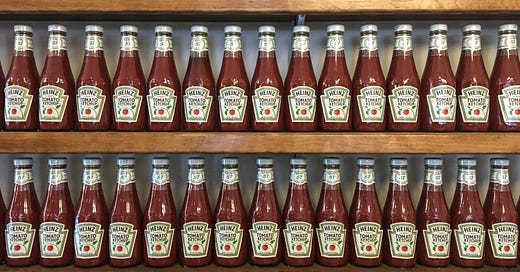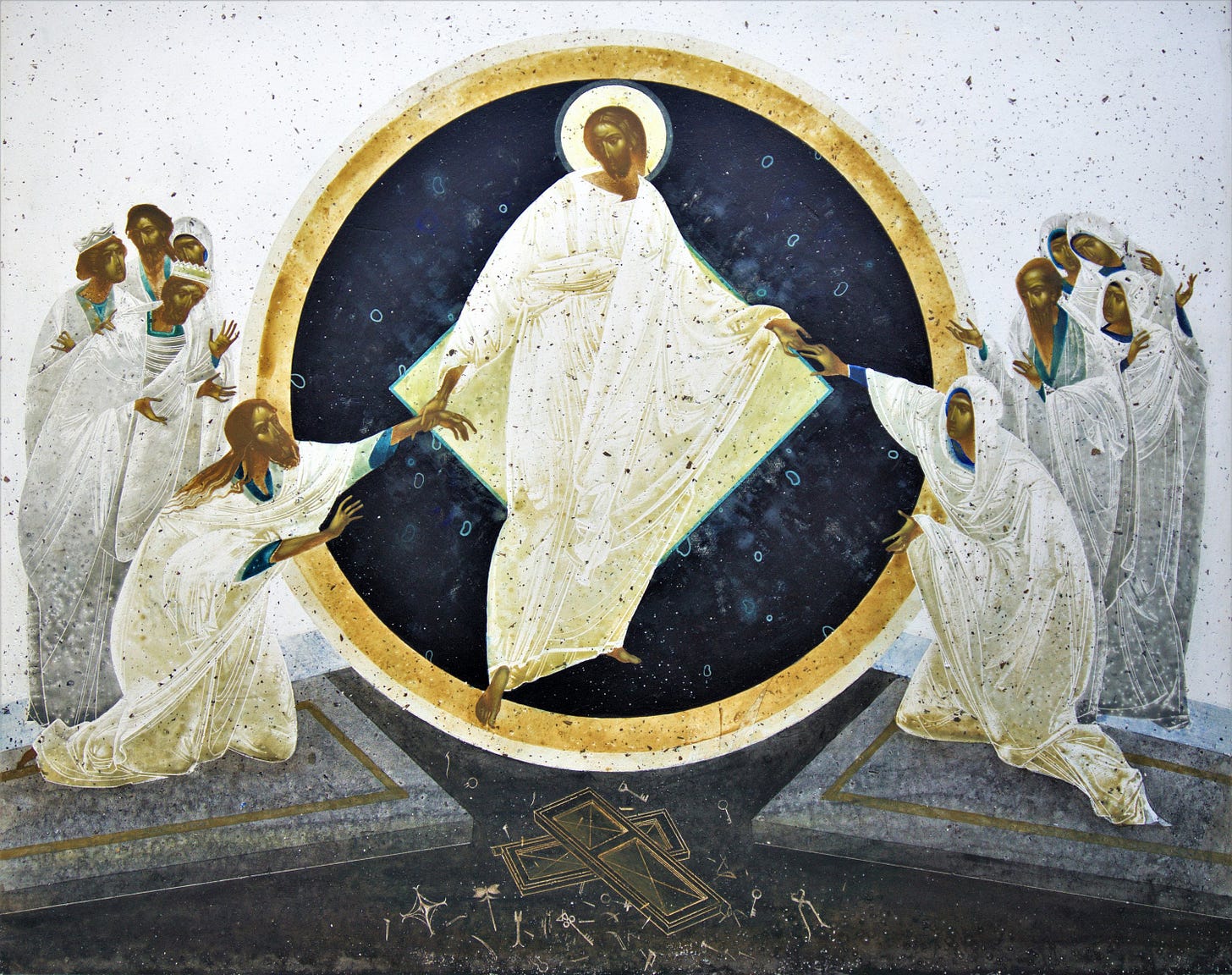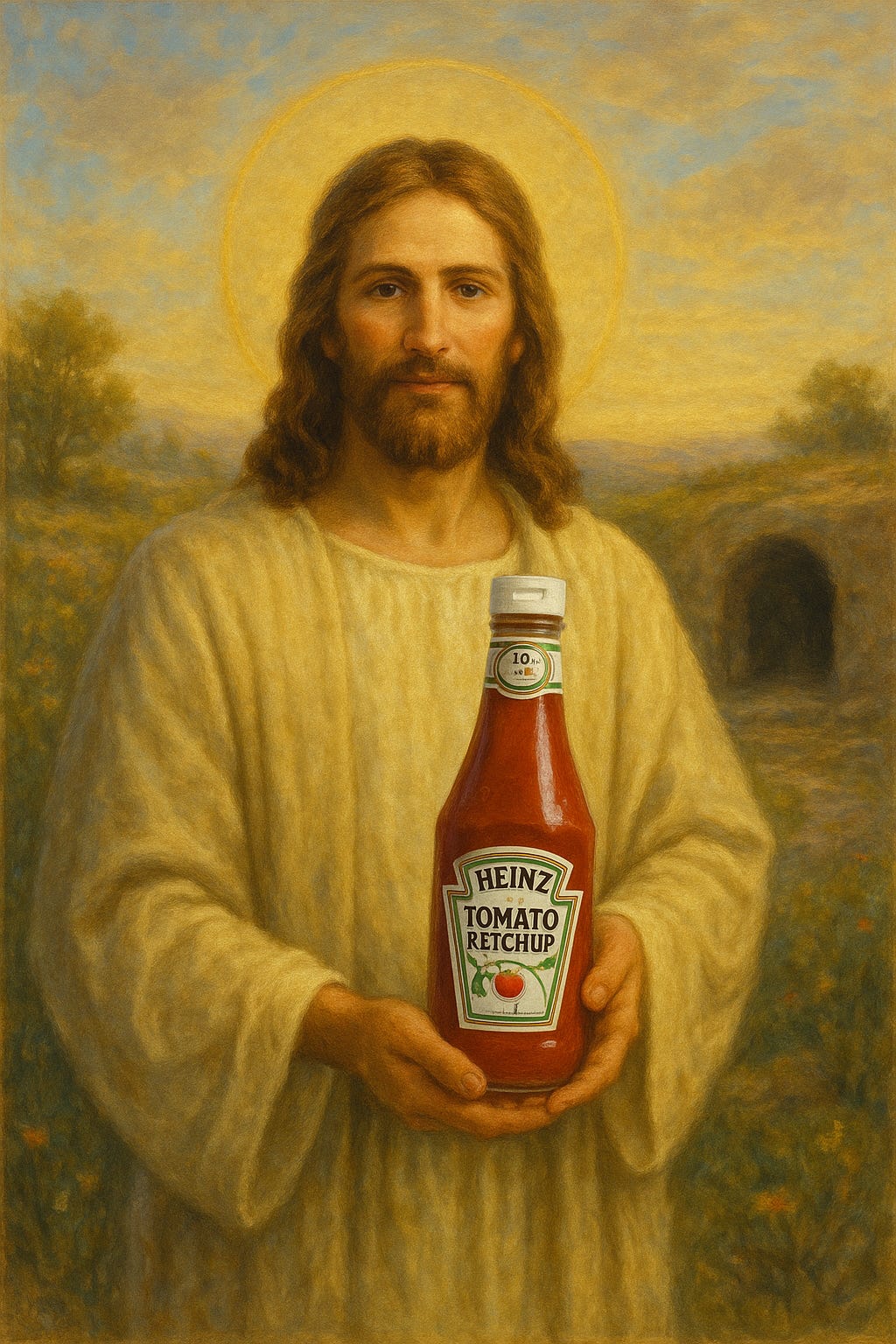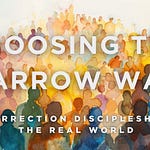God of resurrection and disruption,
we didn’t come here today expecting much—
maybe a little comfort, a little inspiration,
something we could nod along to and forget by lunch.
But you, Lord, are not in the business of meeting our expectations.
You rolled the stone away when no one asked you to.
You raised the dead before we had time to explain why you shouldn’t.
You showed up for cowards, doubters, and betrayers—
which means, heaven help us, you might just show up for us too.
So now that we’ve opened your Word,
ruin us.
Ruin our tired clichés, our pet theologies,
our neat little conclusions about who belongs and who doesn’t.
We came looking for comfort,
but if what we really need is truth—
then don’t let us leave here unchanged.
Speak, Lord.
And give us ears to hear—
even if it messes with our lives.
In the name of the Crucified and Risen One,
who never did know how to stay dead,
Amen.
A few weeks ago, I was out walking, earbuds in, trying to clear some space in my head before Easter. And somehow—because the Holy Spirit works in strange algorithms—I found myself listening to a conversation between Bert Kreischer and Matthew McConaughey.
Yes, a shirtless (off-color) comedian and an actor with an unmistakable southern drawl on Easter Sunday.
They weren’t talking theology, not exactly. As they talked about how to make the best tuna fish sandwich, the conversation shifted to ketchup.
You heard me right—ketchup. Of all things.
What struck me, though, wasn’t just the absurdity of two celebrities earnestly debating condiments—it was how right they were. Ketchup, they argued, isn’t just a condiment in the back of the fridge. Ketchup is the most versatile, most beloved, most dependable thing on the table. It goes with everything. It meets you where you are. It doesn’t try to impress—it just shows up and makes everything else taste better.
I have never heard a more absurd conversation be more right.
As Kreischer and McConaughey continued, they mentioned an old Malcolm Gladwell essay—The Ketchup Conundrum—where Gladwell talks about how mustard has gone gourmet, but ketchup? Ketchup remains basically unchanged. Why? Because it satisfies everyone. It hits all the basic tastes—sweet, salty, sour, bitter, umami—in one simple, faithful bottle. Not flashy. Just complete.
So, when I got home, I found a copy of this essay. And, believe it or not, I thought about Easter.
Because what ketchup is to the dinner table—simple, faithful, made for everyone—the Resurrection is to humanity.
We’ve tried to dressed it up over the years. We’ve added our flavors and tried to customize grace. But on that first Easter morning, when the women came to the tomb, they did not find a boutique faith or an exclusive message for the few.
They found an empty tomb and a message for everyone.
Luke tells us that the women came with spices—because they expected death, not life. Spices- used to remove the stench of death.
No one goes to a cemetery expecting the dead to be alive. Imagine, yesterday during our egg hunt in our cemetery that dates back to the 1840s, if as the children were hunting eggs if those thought to be dead began to spring up from the ground.
The women came to perform a final act of love, to prepare Jesus’ body, to say goodbye. But what they found was a stone rolled away, and messengers who asked the most remarkable question:
“Why do you look for the living among the dead?”[i]
It’s not a rebuke. It’s an invitation.
The two men in dazzling clothing remind the women what Jesus had already told them—that he would suffer, die, and rise. And then they remember. Not with logic, but with love. Not with certainty, but with trust.
The women go back and tell the others—all of them. The deniers, the deserters, the doubters. Like the women, the others had forgotten what Jesus had said—how he would suffer, die, and rise again. It wasn’t that they didn’t care. It’s that their fear and grief had drowned out their memory.
And Luke tells us the others didn’t believe the women. “These words seemed to them an idle tale.”[ii]
Of course they did. Yes, Jesus told them what was going to happen—but let’s be honest, resurrection never makes sense. Not to logic. Not to lived experience. It only makes sense to love.
Grace doesn’t play by the rules of credibility. That’s what makes it grace.
Peter, at least, gets up and runs. He doesn’t understand it, but he runs toward it. And when he sees the empty tomb, he leaves amazed—not convinced, not yet—but with wonder. Peter doesn’t leave the tomb ready to preach a sermon. He leaves with questions, with awe, with something stirring he can’t yet name. Which—let’s be honest—is how many of us experience resurrection, too.
This is what resurrection looks like. Not certainty. Not polished belief. Just people running toward hope they don’t quite understand.
And here’s the good news: Jesus shows up for all of them.
For the women who came with spices.
For the men who didn’t believe them.
For the ones who locked the doors.
For the one who denied him.
For the one who betrayed him.
For the ones who loved and failed and feared and waited.
But that empty tomb is not just a curious miracle. It is God’s definitive act of rebellion against death itself. It’s not a trick. It’s not a reversal. It’s an uprising.
It’s God breaking into the very systems—biological, political, spiritual—that told us death was final, and declaring: no, not for this one. And not for you either.
Because what separates us from God isn’t just sin—it’s shame. It’s the belief that we’ve gone too far, failed too badly, doubted too deeply. But resurrection is God saying, “You’re wrong. I already went farther.”
The late Episcopal priest, The Rev.Robert Capon puts it like this:
“Grace works without requiring anything on our part. It’s not expensive. It’s not even cheap. It’s free.”[iii]
And The Rev. Fleming Rutledge reminds us:
“The resurrection is not a set piece. It is not an isolated demonstration of divine dazzlement. It is not to be detached from its abhorrent first act. The resurrection is, precisely, the vindication of a man who was crucified.”[iv]
It is the manifestation of a cosmic victory, not the cancellation of a tragedy.
The cross doesn’t get erased on Easter—it gets lit from behind.
The Resurrection isn’t Jesus putting a bow on a tragedy. It’s God taking the full weight of death, betrayal, fear, and shame—and breaking it open from the inside.
This is what makes Easter matter: not that it’s believable, but that it’s true.
True for all of us.
True for every kind of failure and every kind of faith.
So maybe ketchup isn’t the worst metaphor after all. Not because it’s clever or funny (though many of you were worried about where this sermon was going). But because it’s ordinary. It’s always there. It meets every taste and doesn’t discriminate. It doesn’t try to be impressive. It just shows up and makes everything else taste more like itself.
Jesus doesn’t wait for belief to show up. He shows up to bring it with him
That’s the resurrection: not boutique grace, not gourmet faith, not salvation reserved for the religiously articulate.
It’s grace that meets the whole of who we are—sweet, sour, bitter, hopeful, grieving—and says:
“He is not here. He has risen.” [v]
So come.
Come with your spices.
Come with your doubt.
Come with the things you think separate you from God.
Come hungry.
The table is set. And despite how I started this sermon, there’s no ketchup. But, here, adorning the table are two ordinary things—bread and cup—because it is through these two ordinary items that we touch and taste the extraordinary reality Easter. The good news is that we don’t need to change ketchup, nor do we need to change Easter, because Easter changes us.
[i] Luke 24:5
[ii] Lue 24:11
[iii] Robert Capon, The Romance of the Word: One Man’s Love Affair with Theology. Grand Rapids, MI: Eerdmans, 1995. Page 10.
[iv] Rutledge, Fleming. The Undoing of Death. Grand Rapids: Eerdmans, 2002, p. 192.
[v] Luke 24:5


















Share this post